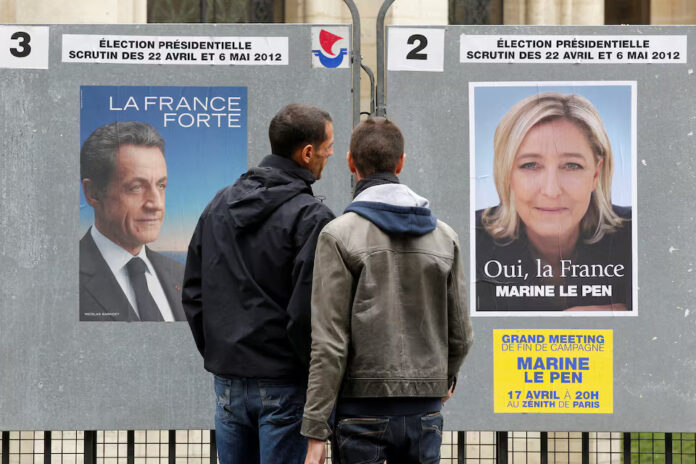
Former French President Nicolas Sarkozy’s jailing has reignited fierce debate over the role of judges in political cases, just months before far-right leader Marine Le Pen faces a pivotal appeal that could determine her eligibility for the 2027 presidential race.
On Thursday, a Paris court sentenced Sarkozy to five years in prison for criminal conspiracy linked to efforts to raise campaign funds from Libya, making him the first French president since World War II to face actual imprisonment. The ruling, immediately enforceable, prevents him from delaying incarceration while appealing, a sharp departure from past practice.
Ludovic Friat, head of the USM, France’s largest magistrates’ union, said the decision underscored judicial independence. “There will clearly be a before and after this decision,” he noted, while cautioning that political actors often use such cases to deflect from the crimes themselves.
Sarkozy, who maintains his innocence, blasted the judgment as a blow to the rule of law, warning it would erode public trust in the judiciary.
The case has intensified scrutiny of “provisional execution”, a mechanism requiring sentences to be served before appeals conclude. Legal experts say the measure has been increasingly used to counter perceptions of impunity among politicians. Judith Allenbach, president of another magistrates’ union, said judges were merely enforcing laws passed by parliament demanding tougher penalties for corruption.
The ruling carries implications for Marine Le Pen, who was convicted in March of embezzling EU funds and handed a five-year political ban under the same procedure. Her appeal, set for January, will decide whether she can contest the 2027 election. Le Pen has called Sarkozy’s sentence proof that provisional executions pose “a great danger,” while her allies allege conservative figures face harsher treatment than others.
Former officials including Brigitte Bareges and Francois Bayrou have had contrasting outcomes in similar cases, fueling claims of political bias. Bareges, convicted and banned from office in 2021, was later acquitted on appeal.
Reactions in Paris were split. Conservative Senate leader Gérard Larcher voiced concern over the fairness of enforcing punishments before appeals are exhausted, while left-wing lawmakers hailed the judgment as a victory for accountability. Prime Minister Sébastien Lecornu signaled openness to parliamentary debate on reforming the law if necessary.
Meanwhile, international attention has grown, with U.S. President Donald Trump describing Le Pen as a victim of “lawfare” and dispatching a diplomatic delegation to show support.
As Sarkozy prepares for prison and Le Pen braces for her appeal, France’s judiciary finds itself at the heart of a heated national conversation over justice, politics, and the rule of law.
Source: Reuters
Written By Rodney Mbua


















